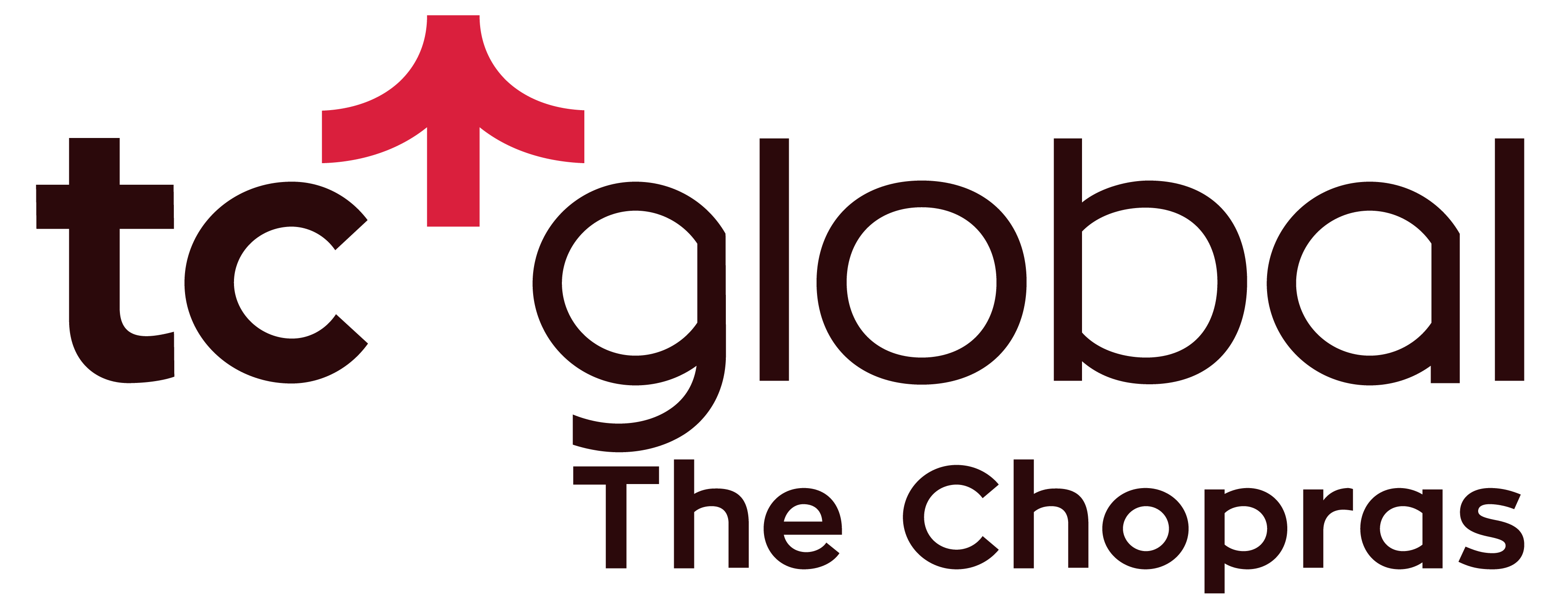If you’re considering top universities for STEM degrees, particularly in computer science and engineering, the University of Illinois Urbana-Champaign vs Georgia Institute of Technology debate may interest you. Renowned in the United States for their science and technology programs, both schools offer state-of-the-art facilities and world-class opportunities for academics and research.
Keep reading this article to get a comprehensive analysis and comparison of UIUC and Georgia Tech across various parameters so that you can make an informed decision about a school that is best suited for your needs.
While we’ll explore a detailed analysis later, here’s a quick summary to give you a holistic competitive view of the two.
University of Illinois at Urbana-Champaign (UIUC) and Georgia Institute of Technology (Georgia Tech) are both top-ranked universities in the United States, particularly known for their engineering and computer science programs.
Academically, UIUC is often ranked slightly higher in computer science – 5th nationally, according to U.S. News, while Georgia Tech ranks 8th in the same category. Overall, though, Georgia Tech is ranked higher. UIUC offers a larger student body with around 35,000 undergraduates compared to Georgia Tech’s 18,000.
In terms of location, UIUC is in Champaign, a smaller college town. In contrast, Georgia Tech is located in Atlanta, a much bigger city. You’d find more internship and networking opportunities in Atlanta due to its proximity to many tech companies. Both campuses are known for their strong research initiatives; UIUC hosts centers like the National Center for Supercomputing Applications, while Georgia Tech is home to the Institute for Robotics and Intelligent Machines.
Campus life at both universities is great, with lots of student organizations and events. If you’re looking for an urban setting, then Georgia Tech may be better. UIUC offers a more traditional college-town feel. As for placements, both schools have strong career services and connections within the tech industry – but Georgia Tech’s location provides a slight edge for internships during the academic year. Faculty at both institutions are highly regarded, with many being leaders in their fields. Ultimately, your choice may depend on whether you prefer an urban or rural campus environment and how important access to internships and industry connections is to you.
Overview of Georgia Tech and UIUC

Both the University of Illinois Urbana Champaign and Georgia Institute of Technology are renowned for their programs in the field of computer science. Besides CS, UIUC is known for psychology, information sciences, bioengineering, molecular biology and agriculture, while Georgia Tech has a global reputation for engineering and technology programs.
Often referred to as the public equivalent of the Massachusetts Institute of Technology (privately owned), Georgia Tech is highly sought after for its STEM degrees due to its application-oriented approach and industry relations. In contrast, UIUC is a comprehensive university with a multitude of options with a more traditional academic and research approach to its disciplines.
UIUC is located in the twin cities of Urbana and Champaign in Illinois, about 150 miles from Chicago. It has a small-town, traditional college atmosphere, while GA Tech is situated in the bustle of Atlanta.
As you consider two of the best colleges in the United States for STEM education, it is important to remember that your choice will ultimately depend on your individual needs, goals, interests, and preferences.
Brief History and Background
University of Illinois Urbana-Champaign
UIUC is a public, land-grant research university set up in 1867. The flagship university under the University of Illinois system, which also includes Chicago and Springfield, is the Urbana-Champaign campus, which is one of the largest universities in the United States by enrollment.
Originally established as the Illinois Industrial University, the institution grew to be called the University of Illinois in 1885 to reflect its multidisciplinary approach, particularly in the fields of agriculture and engineering (mechanical), while also including its liberal arts background.
UIUC ranks 33rd in the country according to US News and World Report and is one of the top ten public universities located in America. It is also among the top ten for library and information sciences, accounting, engineering and computer science programs.
Georgia Institute of Technology
Founded in 1885 in the aftermath of the American Civil War, Georgia Institute of Technology or Georgia Tech (GT) represents the transformation of the American South from an agrarian to an industrial economy. In the first 50 years since its inception, Georgia Tech grew from being a trade school to a recognised technological institute.
A public technological university under the University System of Georgia, it is located in Atlanta, the state’s capital city. Besides the main campus is Atlanta, the school also has satellite campuses in Savannah, Georgia, Metz, France, Shenzhen, China, and Singapore.
One of the premier colleges in the United States for engineering and other STEM-related programs, GT ranks 33rd in the country (US News and World Report 2024) and 114th in the world (QS World University Rankings 2025). The institute has also always been ranked among the top ten public universities in the USA. Georgia Tech is sometimes compared to MIT; in fact, it’s called MIT of the South.
Key Statistics and Rankings
Here is a table comparing the key stats and ranks when it comes to GA Tech vs UIUC.
| University of Illinois | Georgia Tech | |
| Campus | Champaign, IL | Atlanta, GA |
| Nickname | Fighting Illini | Yellow Jackets |
| Mascot | Belted Kingfisher | Wreck, a Ford Model A Sport Coupe |
| U.S. News National Rank 2025 | 33 | 33 |
| QS World University Rank 2025 | 69 | 114 |
| Undergraduate Student Body | 35,000+ | 19,505 |
| Graduate Student Body | 20,000+ | 28,441 |
| % of International Enrollment | ~ 18% | ~ 26.4% |
| Average Acceptance Rate | ~ 42% | ~ 13% |
| Student to Faculty Ratio | 18:1 | 22:1 |
| Number of Undergraduate Programs | 150+ majors | 39 majors and 71 minors |
| Number of Graduate Programs | 100+ | 100+ |
| Research Expenditure | Over $730 million | Over $1 billion |
| Number of Athletic Teams | 21 NCAA Division I teams | 15 teams competing in NCAA Division I |
| Number of Clubs and Student Organizations | 1,000+ | 500+ |
| Colours | Blue and Orange | Tech Gold, Navy Blue and White |
Georgia Tech vs University of Illinois: Academic Comparison

Both the University of Illinois and GA Tech are renowned for their excellent academic programs and world class faculty. Both institutions have fantastic programs when it comes to computer science, engineering, and other STEM sub-fields and often feature in the top 10 list for these subjects. GT, while not as large as UIUC, is a highly renowned public school, especially for the study of applied sciences.
In this section, we look at both UIUC and Georgia Tech to analyse their undergraduate and graduate courses, choices and flexibility, ranking, degrees and class sizes, academic calendars, research facilities and budgets, all of which can become important factors in deciding between the two universities.
Undergraduate Programs
Program Options and Focus Areas:
While both schools primarily have a reputation for technology courses, one of the key differences is that UIUC is a comprehensive university that also has dedicated colleges for law, media studies, medicine, veterinary medicine, education, and fine arts, among other disciplines. Georgia Tech, as the name suggests, is an institute of technology (even though it has gained university status) primarily focusing on science, technology, engineering, and mathematics. GT has a limited number of options when it comes to business, humanities, and the social sciences, which are not as highly renowned as their STEM departments.
Georgia Tech’s foundation as an institute of technology is why the school has fewer programs when compared to a composite university like the University of Illinois. GT offers about 40 majors to choose from, while UIUC has over 150 majors to choose from. On the same lines, UIUC’s approach is more traditional, with greater emphasis on theory and research. In contrast, Georgia Tech follows a more practical, application-oriented approach to its subjects.
Ranking and Reputation:
Even though the university ranking should not be the only factor when it comes to choosing universities, it is a metric that quantifies where universities stand, both at the overall and individual subject levels. Within the United States, UIUC and GT are equally positioned; they are tied at the 33rd spot, according to the US News and World Report 2025. However, on a global scale, the University of Illinois fares better than that of Georgia Tech. U of I ranks 69th, while GT ranks 114th according to QS World University Rankings 2025.
That said, Georgia Tech does not fall far behind when it comes to reputation. In fact, it is a popular choice of school for many who do not get into MIT and is often deemed the public equivalent of MIT. The southern school’s emphasis on practical application and collaborative research also makes it a top choice for numerous students.
Eligibility Criteria and Standardized Test Scores:
Another key difference when looking at Georgia Tech vs UIUC is that Georgia Tech requires its applicants to submit SAT/ ACT test scores, while UIUC is test-optional.
Georgia Tech considers a SAT range of 1370 to 1550 as competitive. With ACT, the scores are typically between 31 and 35. When applying for UIUC, applicants can elect for ACT or SAT scores to be considered in the application review when they submit the application. Applicants who choose to withhold test scores are not disadvantaged in consideration for admission in any way. On average, about 60% of admitted first-years submit their test scores, and the middle 50% has about 1380 – 1530 on the SAT and 30 – 34 on the ACT.
Looking at other admission requirements, both schools do not have an official minimum high school GPA, but competitive applicants typically have at least a 3.55 – 3.94 on a 4.0 scale for UIUC. The minimum GPA to get into the school of engineering at GT is 3.3 on a 4 scale. For most courses, applicants are also required to display a mastery in mathematics, including calculus, science, and English. Most international students are also required to submit IELTS/ TOEFL scores as proof of English language proficiency.
In addition to GPA and test scores, an applicant’s statement of purpose and letters of recommendation also carry weight as part of the application.
Core Curriculum:
The University of Illinois has a core curriculum requirement for all its undergraduates called General Education or “Gen Ed” that typically comprises the following categories.
- Composition
- Humanities and the Arts: Literature & the Arts or Historical & Philosophical Perspectives
- Natural Sciences and Technology: Life Science or Physical Science
- Quantitative Reasoning
- Social and Behavioral Sciences
- Cultural Studies: Western/Comparative Cultures, Non-Western Cultures, and US Minority Cultures
The General Education requirement at GT is designed to enable students to develop a well-rounded focus in addition to the deeply rigorous technical and applied education. All undergraduate students, during their 4-year study, are required to demonstrate a level of proficiency in the following areas –
- Communication
- Quantitative (including differential and integral calculus)
- Institutional Options (typically in areas of computing, algorithmic complexity and so on)
- Humanities, Fine Arts and Ethics
- Natural Sciences, Math, and Technology
- Social Sciences
- Constitution and History
- Wellness
- 18 hours of lower division requirements in each major
Class Sizes:
When it comes to the student body, UIUC is much bigger than Georgia Tech, considering it has more programs. UIUC has about 35,000 undergrads, and the number is around 19,500 at GT. The student-to-faculty ratio at GT is average, at about 22:1, while UIUC has a lower ratio of about 18:1. 33% of classes have fewer than 20 students at Georgia Tech, while about 40% of classes at UIUC have fewer than 20 students. While the differences are marginal, UIUC has smaller classes and a better ratio of faculty to students than GATech.
Acceptance Rates:
At the outset, when comparing acceptance rates, the average at UIUC is around 42%, while it is about 13% at Georgia Tech. Based on these figures, the general understanding is that Georgia Tech is more competitive than the University of Illinois Urbana-Champaign. While these might reflect the rates of some programs, it is important to note that the acceptance rates at UIUC vary quite significantly across departments. For instance, the College of Agricultural, Consumer & Environmental Sciences has a rate of 56.7%, while their computer science programs are highly competitive, with an acceptance rate of about 7.2%.
Even with Georgia Tech, while the university is highly competitive, residents of the state of Georgia have a higher acceptance rate of about 32%.
Top Majors:
| University of Illinois | Georgia Tech |
|
|
Graduate Programs
Graduate Program Options: Both UIUC and Georgia Tech have over 100 graduate and doctoral programs to choose from. While UIUC ranks marginally higher than Georgia Tech, they are both equally acclaimed for their STEM programs, especially when it comes to computer science and engineering. Despite the ranking, Georgia Tech is sometimes considered more prestigious due to its application and practical-oriented approach and more global placement opportunities.
In addition to STEM, GT also has a few options for masters and doctoral degrees. Their Scheller College of Business has a solid MBA program. UIUC has a multitude of other options including business administration, law, medicine, veterinary medicine, media studies, arts, and social work. It is also important to note that all master’s programs offered by Gies College of Business at UIUC are online.
If you are looking at the graduate student body, Georgia Tech is bigger than that of UIUC. The Illinois university has about 20,000 master’s and doctoral students while GA Tech has closer to 30,000 grad students.
Unlike UK universities, US universities do not differentiate between MSc and MRes programs. Almost all graduate degrees in the US take about 2 years to complete and have a combination of classroom-taught and research elements.
College Admissions: The minimum admission criteria in both universities include
- A valid baccalaureate degree and transcripts from a recognised university (GPA varies with departments),
- A strong application form
- A well-written Statement of Purpose (SOP)
- Relevant work experience (for some courses),
- Letters of recommendation (LORs)
- English proficiency test scores (for international students).
However, there is a difference when it comes to standardised test score submission. GRE or GMAT scores are not mandatory at Georgia Tech. GRE scores will be considered if submitted but are not necessary. At UIUC, the GRE is not a mandatory requirement of the Graduate College as a whole but might be required/ recommended for some specific programs.
Top Graduate Programs:
| University of Illinois | Georgia Tech |
|
|
Overall and Subject Ranking
| University of Illinois UC | Georgia Institute of Technology |
| US News National Ranking 2025: 33 | US News National Ranking 2025: 33 |
| Times Higher Education WUR 2025: 46 | Times Higher Education WUR 2025: 40 |
| QS WUR 2025: 69 | QS WUR 2025: 114 |
| Subject and Other Ranking (Source: QS Global Subject Rankings 2024 and US News) | |
|
|
Based on their metrics from different sources, it is clear that the two universities are fairly evenly positioned. Georgia Tech has a great reputation within the United States, while UIUC is ranked higher globally in terms of QS World University Rankings. GT has fewer areas of study due to its origins as an institute of technology but is known worldwide for its hands-on, industry-oriented programs. UIUC is more academic in its approach and is a world leader when it comes to computer science programs.
Both universities are academic giants in their own right, and to consider them as options for higher education is the mark of an excellent student. They offer different advantages to their status primarily due to the scope of subjects they offer. When choosing, the focus should be on the specific departments, their curricula, teaching styles and pedagogies, and what best aligns with your career goals.
Constituent Schools
Georgia Institute of Technology is composed of 6 main colleges, which are then divided into 29 schools. The six colleges are –
- College of Engineering
- College of Computing
- College of Sciences
- College of Design
- Ivan Allen College of Liberal Arts
- Scheller College of Business
The major academic units at the University of Illinois at Urbana-Champaign are:
- College of Agricultural, Consumer and Environmental Sciences
- College of Applied Health Sciences
- Gies College of Business
- College of Education
- The Grainger College of Engineering
- College of Fine and Applied Arts
- Division of General Studies
- Graduate College
- School of Labor and Employment Relations
- College of Law
- College of Liberal Arts and Sciences
- School of Information Sciences
- College of Media
- Carle Illinois College of Medicine
- School of Social Work
- College of Veterinary Medicine
Research Opportunities
Both Georgia Tech and UIUC are premier R1 research universities that encourage their students to push the boundaries of their disciplines. Georgia Tech spends over $1 billion on research every year, while UIUC spends about $730 million.
In addition to the main Georgia Tech Research Institute (GTRI), the university is also home to the Enterprise Innovation Institute and 10 interdisciplinary research centres. GTRI’s core research areas include complex and agile systems engineering, sensor design and integration, information management and cybersecurity, and defence technology development. The university also consistently ranks among the top US Universities based on the volume of research conducted.
One of the best research universities in the Midwest, UIUC has over 175 centres and research institutes dedicated to the advancement of knowledge. The university is also home to “Research Park”, a leading innovation hub for technology commercialisation. It is a unique, dedicated environment that cultivates start-ups and increases capabilities for established companies. Located on campus, Research Park has more than 120 companies and employs over 2,100 people in high-technology careers and over 800 student interns. In addition, the university is known for its contributions to the areas of physics, aerospace engineering, material sciences, and public engagement. About 40% of the university’s undergrads are involved in research activities.
To sum up, both universities foster robust research environments with creative liberty in search of new knowledge. They help students develop a research mindset from the undergraduate level, helping their alumni become leaders and catalysts of change in the world.
Key Dates for Application
In this section, we will be looking at the key dates for application and admission into undergraduate programs (Fall semester) to get a sense of the timeline. Graduate schools have a different timeline. It is also recommended that you verify with the specific department / school that you are applying to, just to ensure they do not follow a different cycle.
| Important Dates | University of Illinois | Georgia Institute |
| Application Opens | September 1 | August 1 |
| Early Action (EA) Deadline | November 1 | EA 1 – October 15 EA 2 – November 1 |
| Regular Admissions Deadline | January 5 | January 6 |
| EA Decision Posted in | January 31 | January |
| Financial Aid Application Deadline | EA deadlines | EA deadlines |
| Regular Decision Posted in | February 28 | March |
| Deadline to accept the offer of Regular admission | May 1 | May 1 |
| Average Acceptance Rate | 7% – 50% depending on course | ~ 13% |
Admission Options to be considered in the UIUC GeorgiaTech debate:
- Both schools do not have an Early Decision (ED) admission pathway.
- The Early Action pathway in both schools is non-restrictive and non-binding.
- Georgia Tech’s EA is split into two. EA 1 is exclusively for Georgia students, while EA 2 is only for non-Georgian students. UIUC has only one Early Action date – it has no EA 2.
- Students who do not complete the GT application by the EA deadline can be considered for Regular Admission.
- Both UIUC and Georgia Tech accept Common Application.
- The application fee is $95 for domestic students and $105 for international students at GT, while it is $70 and $90, respectively at UIUC.
Academic Calendar
Both schools follow a semester system when it comes to their academic calendar. A year is divided into the Fall Semester (August/ September – December) and Spring Semester (January – April/ May). Both schools also have an accelerated/ shorter summer term during which some academic activities take place.
UIUC vs Georgia Tech: Campus Life and Environment

From their location to the campus culture, UIUC and Georgia Institute of Technology offer varied experiences to their students. Let us take a look at some of the other factors that can make a prospective student prefer GT to the University of Illinois or the other way around.
Location
One of the key factors that separates the two universities is their location. The University of Illinois is located in Urbana Champaign, about 150 miles from Chicago, a college town area in the American Midwest with a population of about 230,000. Renowned for its harsh winters and college town vibe ideal for student life, the UC metropolitan area is also known for its safe and friendly ethos.
Located in the American South, Georgia Institute of Technology typically experiences a subtropical climate with hot summers and mild winters. The school is located in urban Atlanta, a city known for its financial and industrial sectors and the third-largest concentration of Fortune 500 companies in the country. A welcome mix of southern hospitality and modern-day diversity, Atlanta also offers varied cultural and recreational opportunities for its people.
Besides the weather, as a college town, the cost of living in the Urbana Champaign area is less than that of urban downtown Atlanta.
Campus Size and Facilities
When comparing campus sizes, Georgia Tech is a much smaller university, spanning over 450 acres with 237 buildings. The entire campus of the University of Illinois spans over 6,300 acres with over 650 buildings.
In addition to the sprawling campus, UIUC has one of the largest public university libraries in the world, with over 24 million titles to choose from. The campus is also home to 4 theatres in the Krannert Center for the Performing Arts that annually hosts 350+ student and professional performances. Other than state-of-the-art academic resources, the university has numerous museums and ver 470,000 square feet of recreational space that includes indoor tracks, leisure pools and multiple courts.
One of the top green colleges, according to the Princeton Review, the GT campus is known for its wooded areas and lush lawns. The campus also provides state-of-the-art facilities for its students, ranging from top-notch libraries, study areas, a competition pool, a diving well, martial arts studios, and an indoor climbing wall. The Campus Recreation Center (CRC) houses all campus recreation facilities and programs, including Women in the Wilderness, the Annual Georgia Tech Ski Trip, the Climbing Wall Competition, the Poker series and many more.
Student Activities and Organizations
When it comes to extracurricular activities, both universities have a culture of enabling students to explore other interests beyond academics to have a more wholesome college experience. .
Athletics:
Georgia Tech has a rich tradition in collegiate athletics and competes for championships in the NCAA Division I and the Atlantic Coast Conference. About 15 GT teams participate in Division I sports. The Georgia Tech Athletic Association sponsors seventeen varsity sports. At UIUC, 10 men’s teams and 11 women’s teams compete at Division I level. The university is also home to 11 major facilities including the Memorial Stadium, State Farm Center, Atkins Tennis Center, Huff Hall, Illinois Field, and the Illinois Track and Soccer Stadium.
Student clubs and organizations:
Looking beyond athletics, UIUC has over 1,000 student clubs and organisations to choose from, including academic clubs, animal welfare organisations, virtual reality organisations, and various young American organisations. The campus also has an active Greek life, with 54 fraternities and 42 sororities. Around 5,900 out of the 35,000+ undergrads are members of a fraternity or sorority.
Georgia Tech houses more than 500 student clubs,forums, and organisations, not including a student media house and numerous events that take place throughout the year. The campus also accommodates 56 chapters of fraternity and sorority life, with 25% of undergraduates involved in them.
Housing and Accommodation
At the undergraduate level, UIUC requires freshmen to live on campus, while it is optional at GT, even though about 97% of first-years choose to live on campus. UIUC has 24 residence halls for undergrads that can accommodate over 8,500 students, while GT has over 20 different housing options for undergraduates alone. Options include traditional dorms, suites, and apartment-style rooms that are shared among students. About 50% of students choose to live on campus at UIUC, while the number is around 44% for GT.
Both schools also have dedicated housing options for their graduate students, ranging from residence halls to family apartments. The housing office of both schools also assists students with the requirements of off-campus accommodation.
Georgia Tech vs UIUC: Financial Aspects

Costs are an important consideration in your decision-making process when choosing between the Georgia Institute of Technology vs University of Illinois Urbana Champaign. As public universities, both Georgia Tech and UIUC are generally more affordable when compared to a private university like MIT, Stanford or any of the Ivy League Universities. They also provide subsidised rates for the residents of the state.
That said, UIUC is more expensive when it comes to tuition and fees when compared to Georgia Tech, even for the residents of Illinois. However, the cost of living in the Urbana Champaign area is also lower when compared to Atlanta. Both schools also have highly inclusive financial aid programs. Here is a table that provides a general picture of the cost of studying in each of these universities.
| Annual Rates | UIUC | GT |
| Tuition (Bachelor’s) | In state: $17,640 – $22,904 Out of state: $36,760-$44,664 Intl: $37,708 – $47,796 |
In state tuition: $10,512 Out of State tuition: $32,938 International: $33,566 |
| Tuition (Master’s, not including professional programs) | In state: $14,500 – $50,000 Out of state andInternational: $31,000 – $50,000 |
In state: $16,500 – $30,000 International: $36,000 – $45,000 |
| MBA Tuition | $24,984 (Online MBA) | In state – $30,246 International – $43,604 |
| Housing (On-Campus) | $14,500 (inclusive of food) | $7,654 |
| Food (Meal Plan) | ~ $6,000 | $5,954 |
| Off-Campus Housing | $5,9500 – $14,500 | $10,000 – $25,000 |
| Types of Financial Aid | 1. Grants (need-based) 2. Scholarships (merit-based) 3. Waivers 4. Student Loans 5. Work Study |
1. Scholarships and Grants 2. Loans 3. Work Study 4. Federal Aid (Both merit and need-based options are available) |
| International student scholarships |
|
Not eligible for
|
| Estimated average grant for an aid student | $22,658 | $14,927 |
| Admission Decisions | Need-blind for in-state students | Need blind only for in-state students |
| Demonstrated Need Cover | About 45% | About 50% |
Here are a few important points to be kept in mind.
- Public universities are generally cheaper but also have lower demonstrated need covers.
- Both have numerous scholarship and financial aid options. It is important to research specific scholarship options for the program/ department that you are applying for.
- The tuition fees are average figures calculated for a typical academic year of 9 months. The fee will be higher should you choose to take extra courses in the summer months.
- The tuition fee amounts in the table are indicative of only the cost of attendance. It does not include books, student health insurance and other expenses. Student insurance alone can cost between $3,000 – $7,000 a year.
- While both schools have merit and need-based options, UIUC typically does not offer need-based aid for international students.
- International students can, however, apply for work-study or external sources of funding.
Georgia Tech vs University of Illinois: Career Prospects and Alumni Network
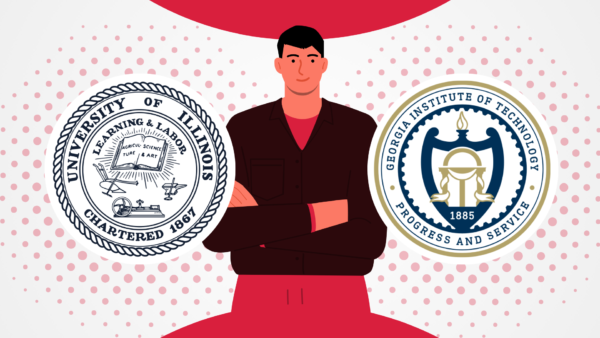
Keeping in mind the standing of the two universities, and their extensive alumni networks, it comes as no surprise that a graduate of these schools will have numerous opportunities of their choosing after graduation. The academic rigour and culture of research in these two universities create a pedigree that recruiters often compete to get for their organisations.
Employment Rates
Georgia Tech has an employment rate of about 89 – 90% of its graduates receiving employment offers within six months of graduation. About 95% of 2022 UIUC grads reported being employed or continuing their education within 6 months of graduation. If you are comparing graduation rates, the 6-year graduation rate at Georgia Tech is about 93% while it is around 85% at UIUC.
Notable Alumni
UIUC has over 545,000 living alums across the globe, one of the largest alumni organisations in the US; while Georgia Tech’s alumni network extends across a community of 170,000 people who are some of the brightest minds in science, technology and business.
If you are comparing Nobel Laureates as a mark of academic excellence, UIUC is associated with about 24 Nobel Prize Winners and over 15 Pulitzer winners while former president Jimmy Carter and Chemist Kary Mullis are from Georgia tech.
Notable Alums of UIUC
- Rosalyn Yalow, Nobel Prize in Medicine
- Jawed Karim, Co-founder of YouTube
- Nick Offerman, Actor
- Marc Anderssen, Co-author of Mosaic, co-founder of Netscape
- Reshma Saujani, Founder and CEO of Girls Who Code
- Ed Boon, Creator of the Mortal Kombat video game series
Other Notable Alumni from Georgia Tech
- John Young, Astronaut
- Jeff Foxworthy, Comedian and actor
- Dennis Hayes, Founder of Hayes Communications
- Robert Milton, Former CEO of Air Canada
- Wallace Coulter, Engineer
- Krishna Bharat, Research Scientist, Creator of Google News
Career Services
From internships to employment opportunities, organisations and recruiters seek students and graduates of top universities like UIUC and GeorgiaTech. In both universities, the career centres for strategy and success assist their students in gaining practical experience, building networks and communicating their aptitudes and skill sets to prospective employers. They also play an instrumental role in building leadership skills and specialised skills that are essential to a workplace.
In both universities, the career centre connects students to internship opportunities and prospective employers through seminars, job fairs, and numerous other on-campus events. Their goal is to clarify career aspirations, identify opportunities, and offer support at every stage of career development.
Georgia Tech has a reputation for its hands-on, practical approach so that GT graduates are ready to meet the demands of the industry. The engineering school at GT especially offers a five-year undergraduate co-op program designed in such a way that a student can complement academics with paid practical work experience. UIUC has a few co-op options, but the onus is typically on the student to find co-ops/ internships.
Georgia Tech vs UIUC: Conclusion
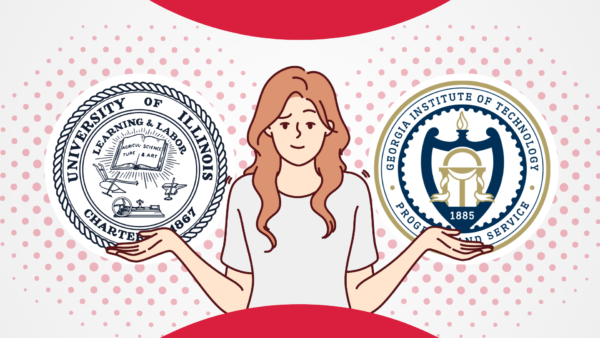
Choosing between Georgia Tech and UIUC involves looking at various factors such as academic strengths, campus life, financial implications, and career prospects. Both universities offer unparalleled opportunities, but your decision should align with your personal and professional goals.
From being located about 600 miles from each other, they have more differences than similarities. The key aspect that ties the two schools together is that they are both public universities, renowned for STEM and its related fields. They also provide numerous financial aid and housing options for their students. Beyond that, the following list highlights the key differences.
- Both UIUC and GT are tied at the 33rd spot in US News national rankings but are recognised differently on a global scale. Georgia Tech ranks 40th while UIUC ranks 46th according to THE WUR 2025, but the metrics are very different according to QS World University Rankings 2025. According to QS, UIUC ranks 69th, while GATech ranks 114th in the world. The lower ranking of GA Tech is primarily due to the fewer options it offers than UIUC.
- When it comes to individual subjects, UIUC is highly renowned for information sciences, computer science and agriculture, while GT has a reputation for engineering and technology, AI, data sciences, statistics and operations research, among other disciplines.
- Despite attaining university status, Georgia Tech began as an institute of technology and continues to be heavily influenced by a technological and application oriented approach to all its programs. GA Tech has a few programs to choose from in social sciences, business and humanities. In contrast, UIUC is a more comprehensive university that offers a wide variety of programs across disciplines.
- The cost of tuition is lower at Georgia Tech when compared to UIUC but the cost of living in Atlanta is higher than the Urbana Champaign area.
- UIUC has more undergraduates than Georgia Tech while the number of grad students is higher in GT than UIUC. That said, UIUC has a marginally lower student to faculty ratio when compared to GT.
- While both universities are selective in their admissions, GA Tech has an average acceptance rate of about 13% while the rate varies significantly across the departments of UIUC. One of the most popular programs, computer science, has an acceptance rate of about 7% while the overall university average is about 40%.
- For undergraduate admissions, GT requires SAT/ ACT scores while UIUC is test optional.
- All master’s degrees offered by the Gies College of Business at UIUC are online. The Scheller School of Business at Georgia Tech has in-campus programs.
- Georgia Tech has a smaller campus when compared to UIUC but has more grad students.
- UIUC requires freshmen to stay on campus while it is optional at Georgia Tech. That said, both schools have a limited number of on-campus accommodations for their students.
- Urbana Champaign and the American midwest is known for their harsh winters with temperatures going as low as -20ºC. It is a college town and marginally less expensive than Atlanta. In contrast, Atlanta has hot summers, very mild winters and a comparatively higher cost of living.
Considering their reputation, the ultimate call rests on whether the course curriculum and the learning outcomes meet your career plans. The most significant part of your research is to compare courses, syllabi, electives, faculty and research facilities of your preferred degree program, speak to current students, and then decide depending on which school better suits your needs.
We understand that becoming an international student can be very thrilling, but the prep and paperwork of it all can get overwhelming. The easiest way to reduce your stress is to sign up with TC Global.
We simplify international education, learning, and mobility through connecting students, universities, and a global community on a single platform where there are over 1000+ education providers and over 80,000+ courses.
Our platform enables students to study anywhere in the world in just a few steps. From search and discovery and finding the right course fit for you, to applications, visas and departure – we see you through it all.
To move forward with us, download our app or visit tcglobal.com and sign in to create an account on our student platform and onboard with us in quick, easy steps.! ?
Then simply set up a visit Calendly.com/tcglobal to pick a Relationships Team closest to you and choose a slot to meet with a Relationship Member. Be it UIUC vs Georgia Tech or any such debates, our experts will be with you every step of the way to help you decide.
Let’s shape your future together.
FAQs
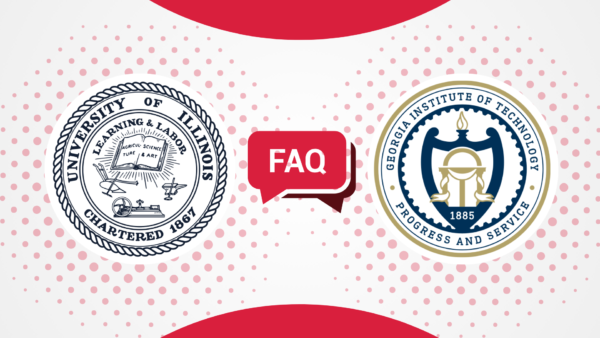
Is Georgia Tech a Tier 1 college?
While there is no official classification of colleges into tiers, universities in the US can be classified, based on their reputation and their selectiveness of admissions. Keeping that in mind, the Ivy League (Harvard, Princeton, Yale and others), Stanford, Caltech, MIT, and Johns Hopkins can be considered as Tier 1 while Georgia Tech, NYU, UCLA, UC Berkeley, Tufts, USC and many others are considered Tier 2.
Is UIUC tough to get into?
Depends on the program. One of the hardest fields to get admission to is computer science, which has an acceptance rate of about 7.2%. Beyond that, the average acceptance rate of the university is around 42%.
Is Georgia Tech a prestigious university?
Yes, known particularly for its engineering programs, Georgia Tech ranks 33rd in the country.
Is UIUC better than NYU?
There is only a marginal difference in their ranks both nationally and globally. However, NYU has a better global reputation for social sciences, humanities, and arts programs while UIUC is known for STEM. Both universities however offer extensive career services, partner with top employers,tech companies and industries, and provide opportunities to network and socialise.
Is Georgia Tech an Ivy?
Georgia Tech is considered as one of the public Ivy League universities.
Is Georgia Tech hard to get into?
With an acceptance rate ranging between 13 and 15%, Georgia Tech is highly selective in its admission processes.
Is Georgia Tech expensive?
Compared to private universities, especially the Ivies and other Tier 1 schools, Georgia Tech is more affordable. The undergraduate tuition for in-state students is $10,512 while it is around $33,000 for non-Georgia and international students.
You May Also Like

Compare more universities in USA
-
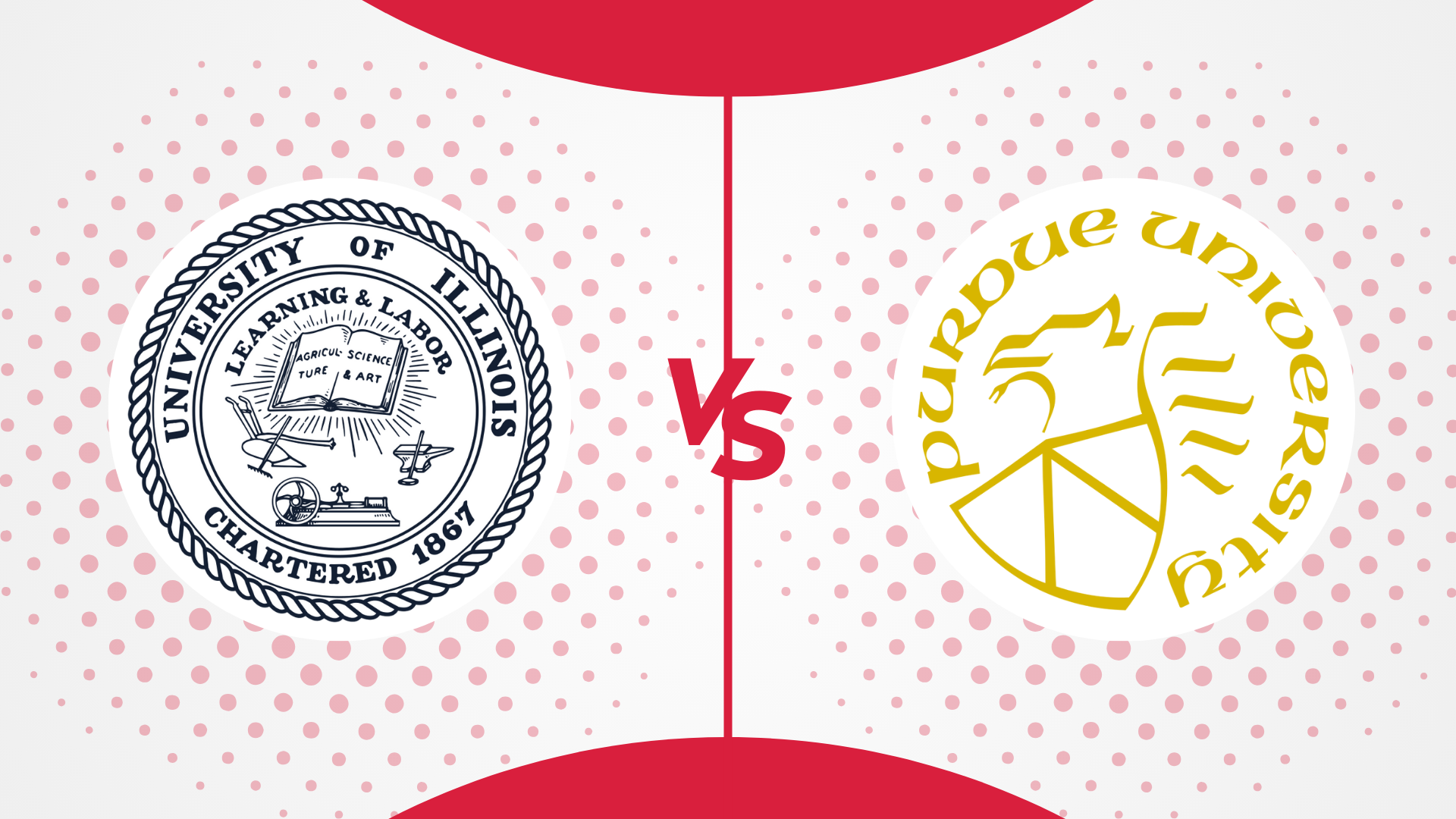
Purdue vs UIUC: How Do They Compare in 2025?
December 16, 2024 -
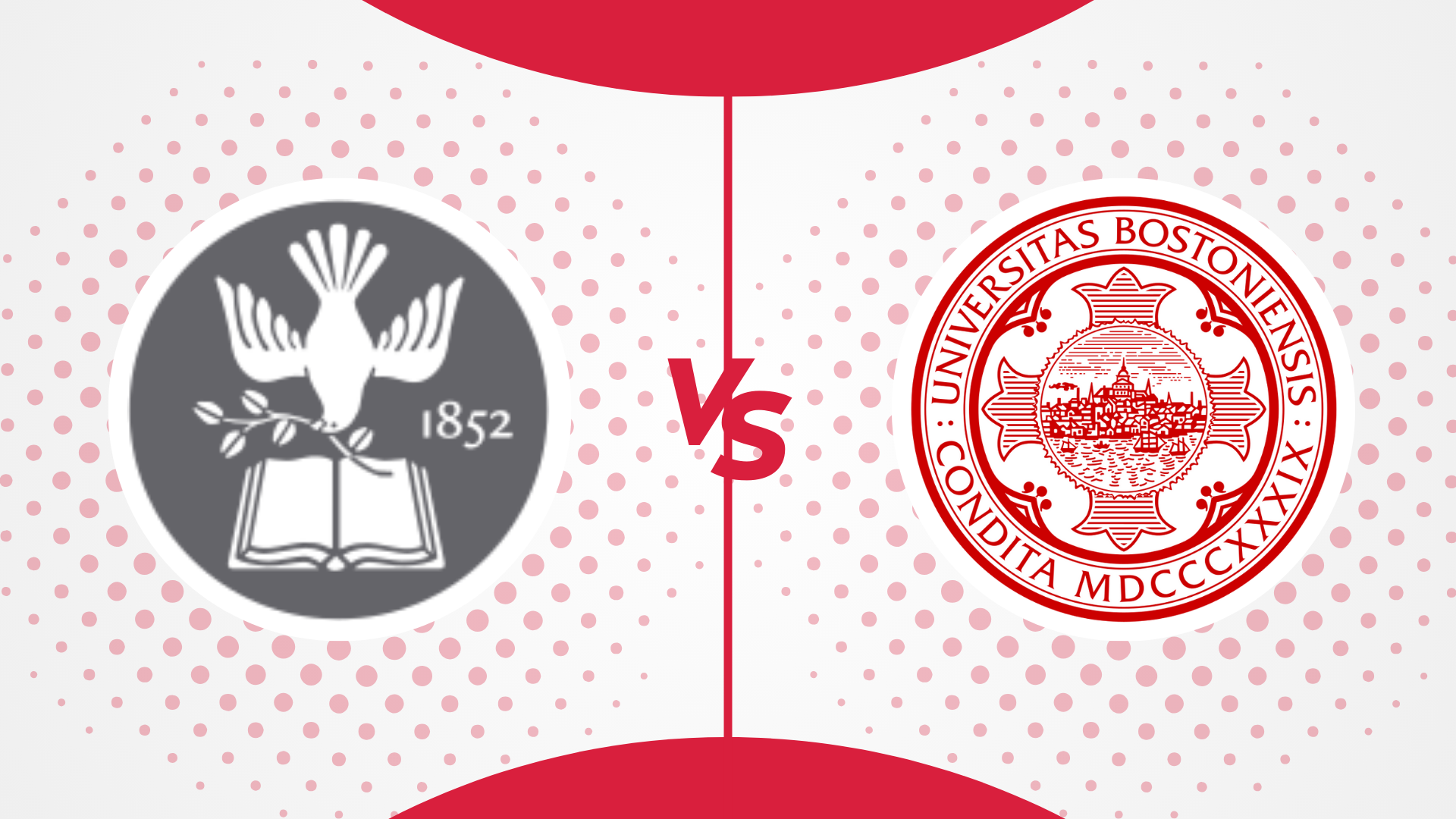
Tufts vs BU: How Do They Compare in 2025?
December 16, 2024 -

Georgia Tech vs UT Austin: How Do They Compare? [2025]
September 24, 2024 -

UC Davis vs UC Irvine: How Do They Compare in 2024
September 10, 2024 -
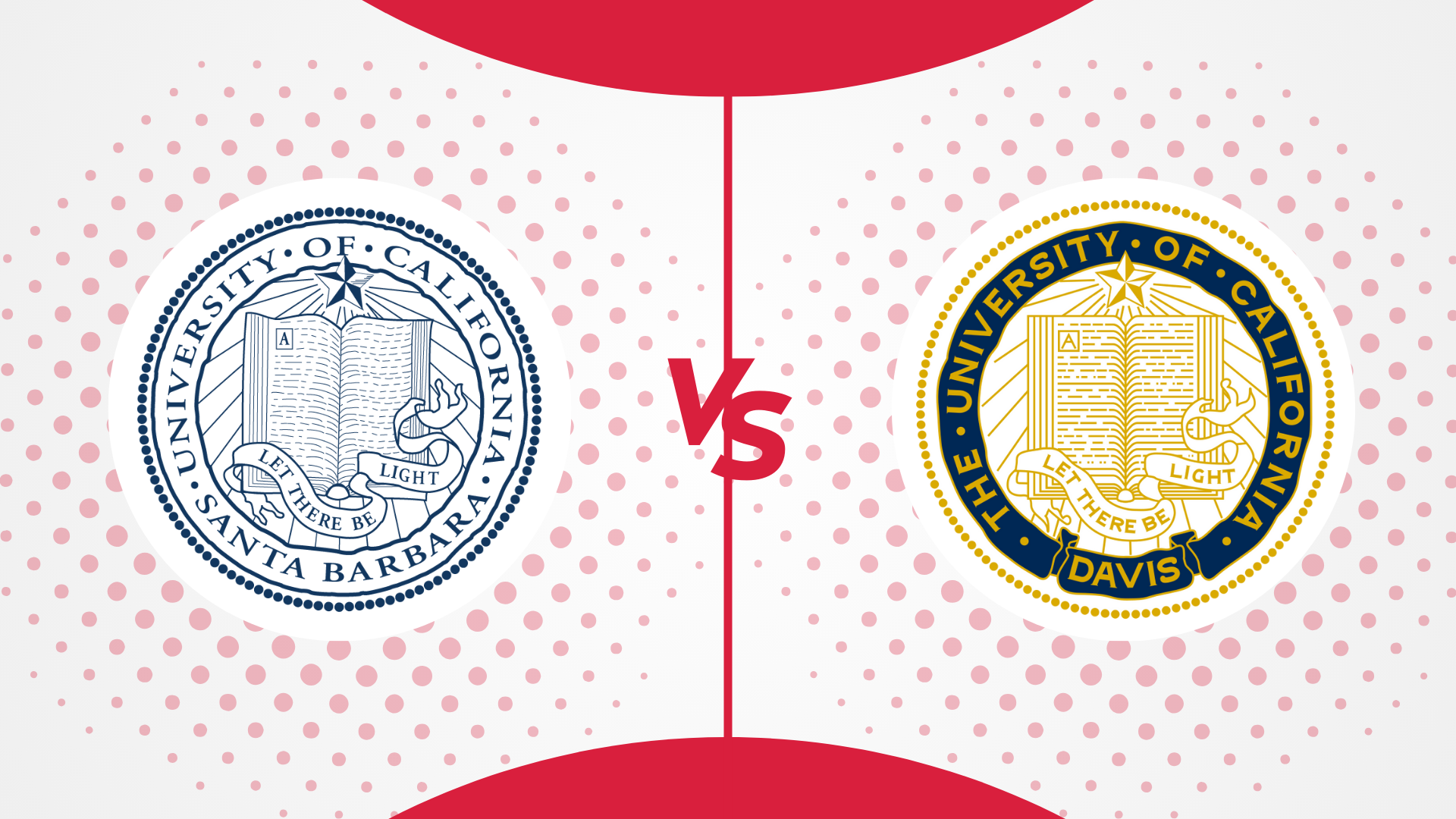
UC Santa Barbara vs UC Davis: How Do They Compare? [2024]
August 30, 2024 -
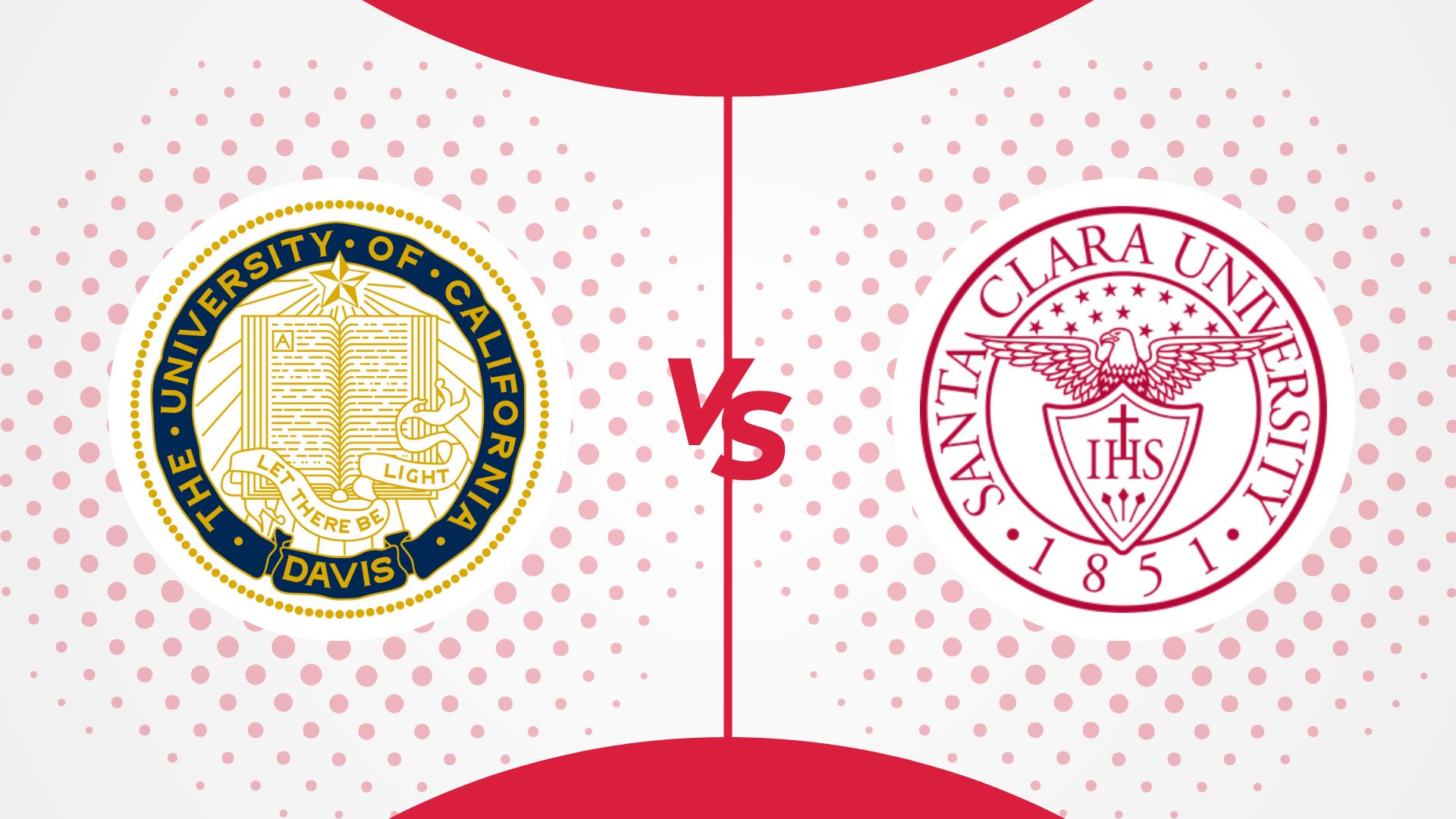
UC Davis vs Santa Clara University: How Do They Compare? [2024]
August 23, 2024 -

University of Chicago vs Northwestern University: How Do They Compare
August 20, 2024 -

Georgia Tech vs MIT: How Do They Compare? [2024]
August 7, 2024 -

Caltech vs MIT: How Do They Compare [2024]
August 2, 2024 -

MIT vs Harvard: How Do They Compare [2024]
July 27, 2024 -

Cornell vs Harvard: How Do They Compare? [2024]
July 27, 2024 -

Yale vs Harvard: How Do They Compare [2024]
July 22, 2024 -

Harvard vs Princeton: How Do They Compare [2024]
July 16, 2024 -
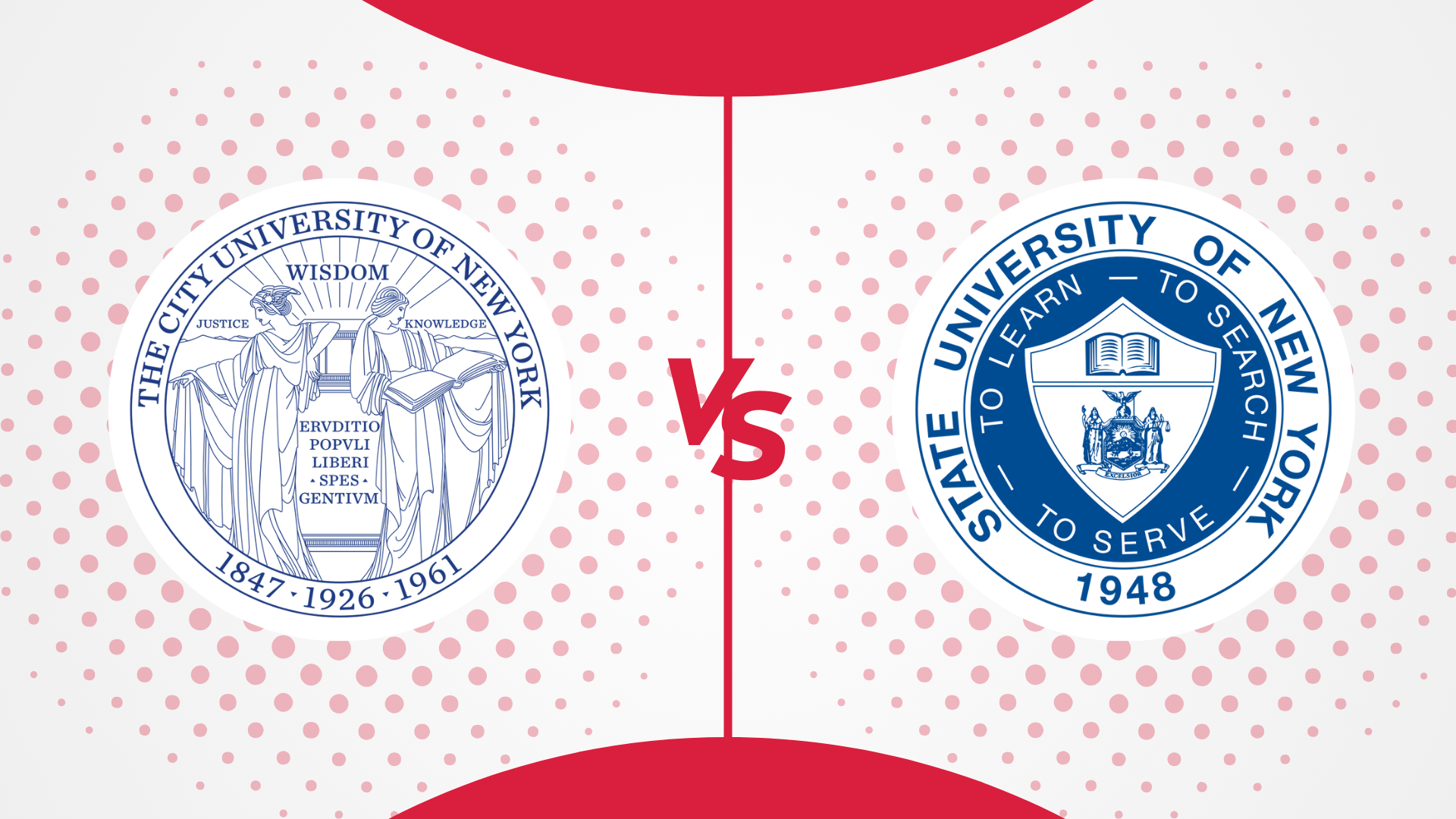
CUNY vs SUNY: Which One is For You in 2024
July 9, 2024 -
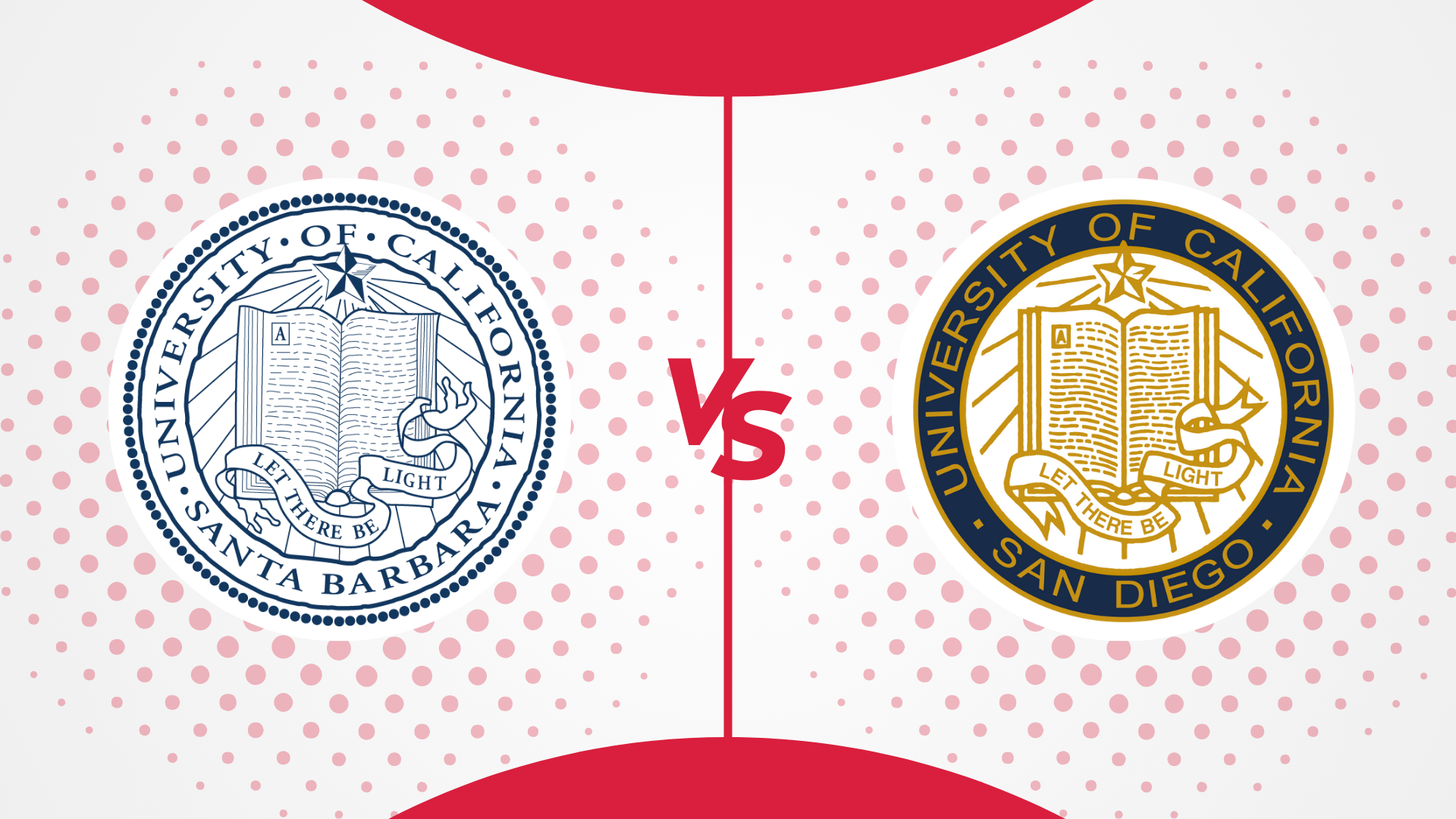
UCSD VS UCSB: Which One is Better For You in 2024
July 9, 2024 -
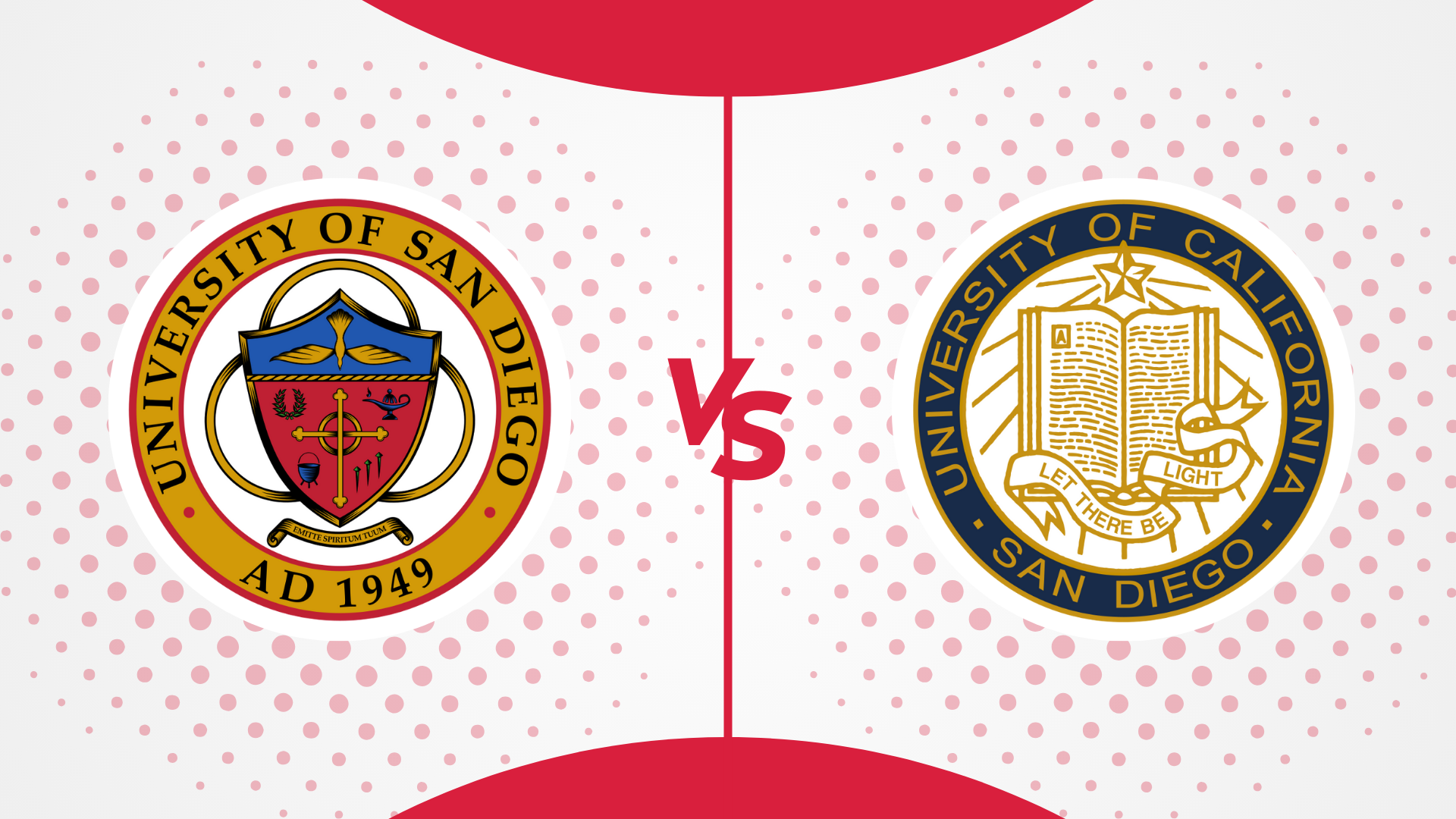
USD vs UCSD: Which one should you choose in 2024?
July 9, 2024 -
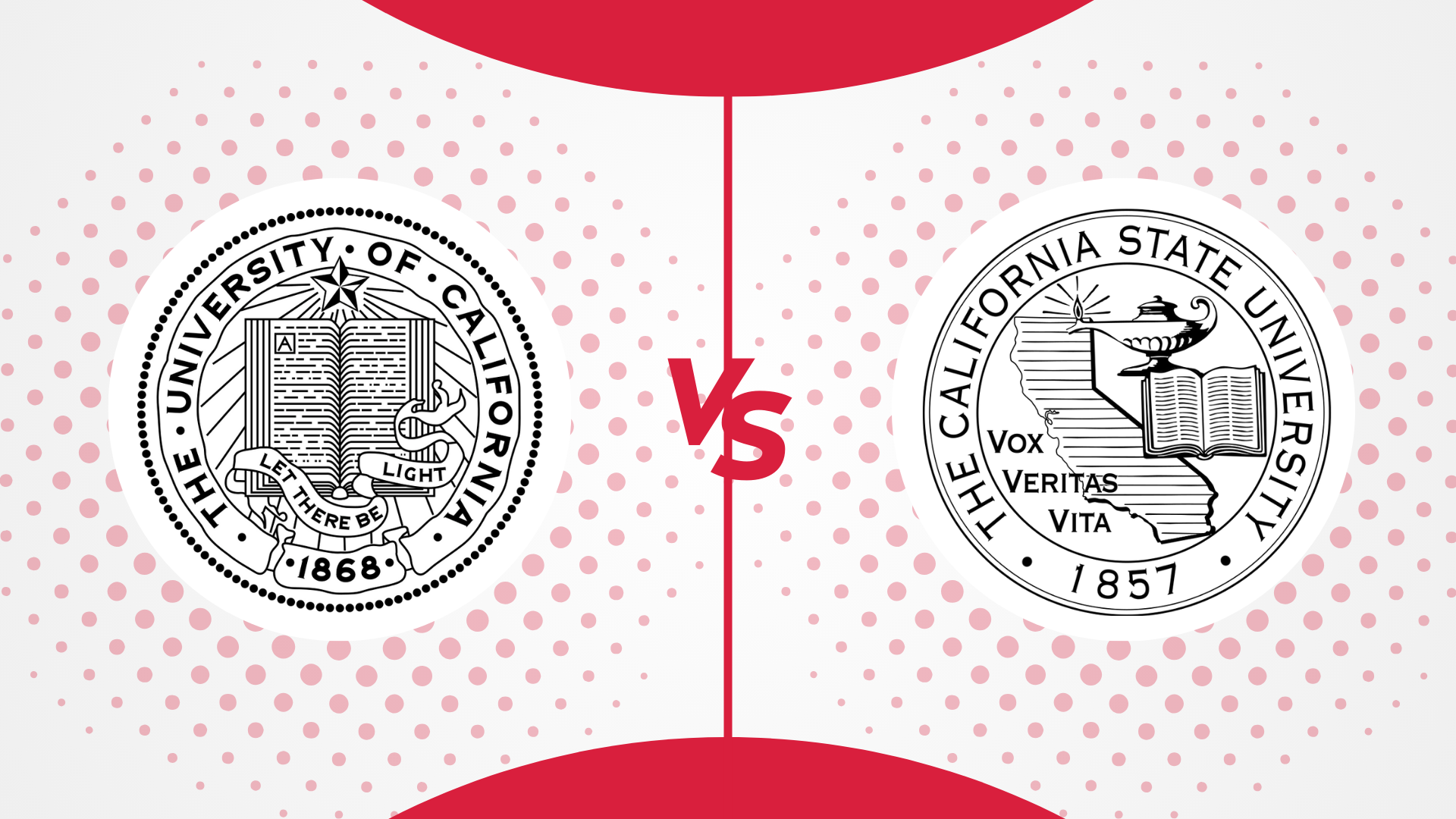
UC vs CSU: Which One is Better in 2024?
July 9, 2024 -
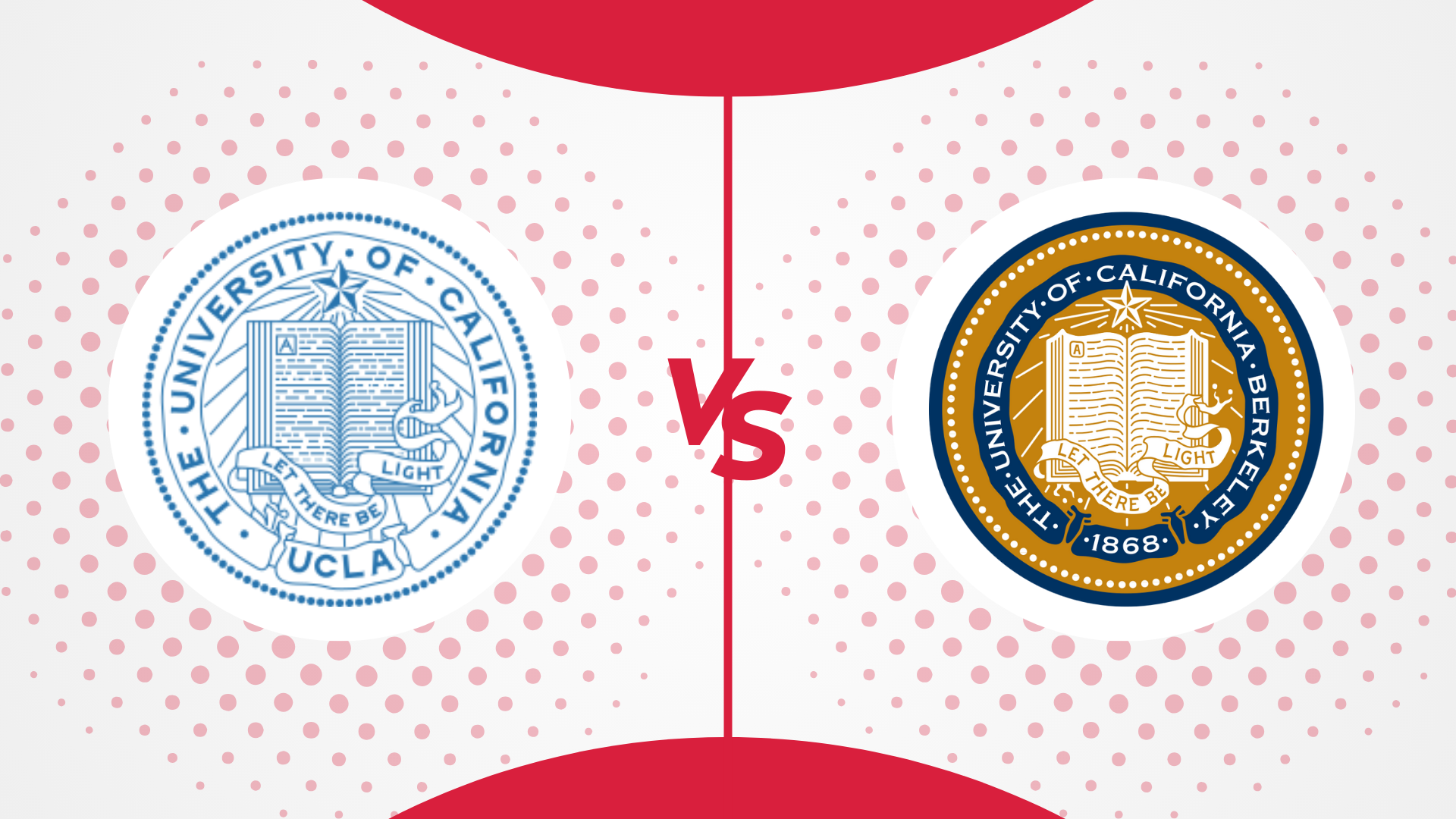
UCLA vs UC Berkeley: Which One is Best in 2024
July 9, 2024 -

University of Arizona vs Arizona State University: Which One is Better in 2024
July 9, 2024 -

Penn State vs UPenn: Which is Better for International Students in 2024
July 9, 2024 -

Northeastern vs Northwestern: Which One is Best in 2024
July 9, 2024 -

Northeastern University vs Purdue University – Which One is Better in 2024?
July 9, 2024 -

Boston College vs Boston University: Which One is the Best in 2024?
July 9, 2024 -

LSU vs UCLA: Which Is Better For You In 2024?
July 8, 2024 -

NYU vs Boston University: Which One Is Better For You In 2024
July 8, 2024 -

USC vs UCLA: Which One Is Better For You In 2024?
July 5, 2024 -
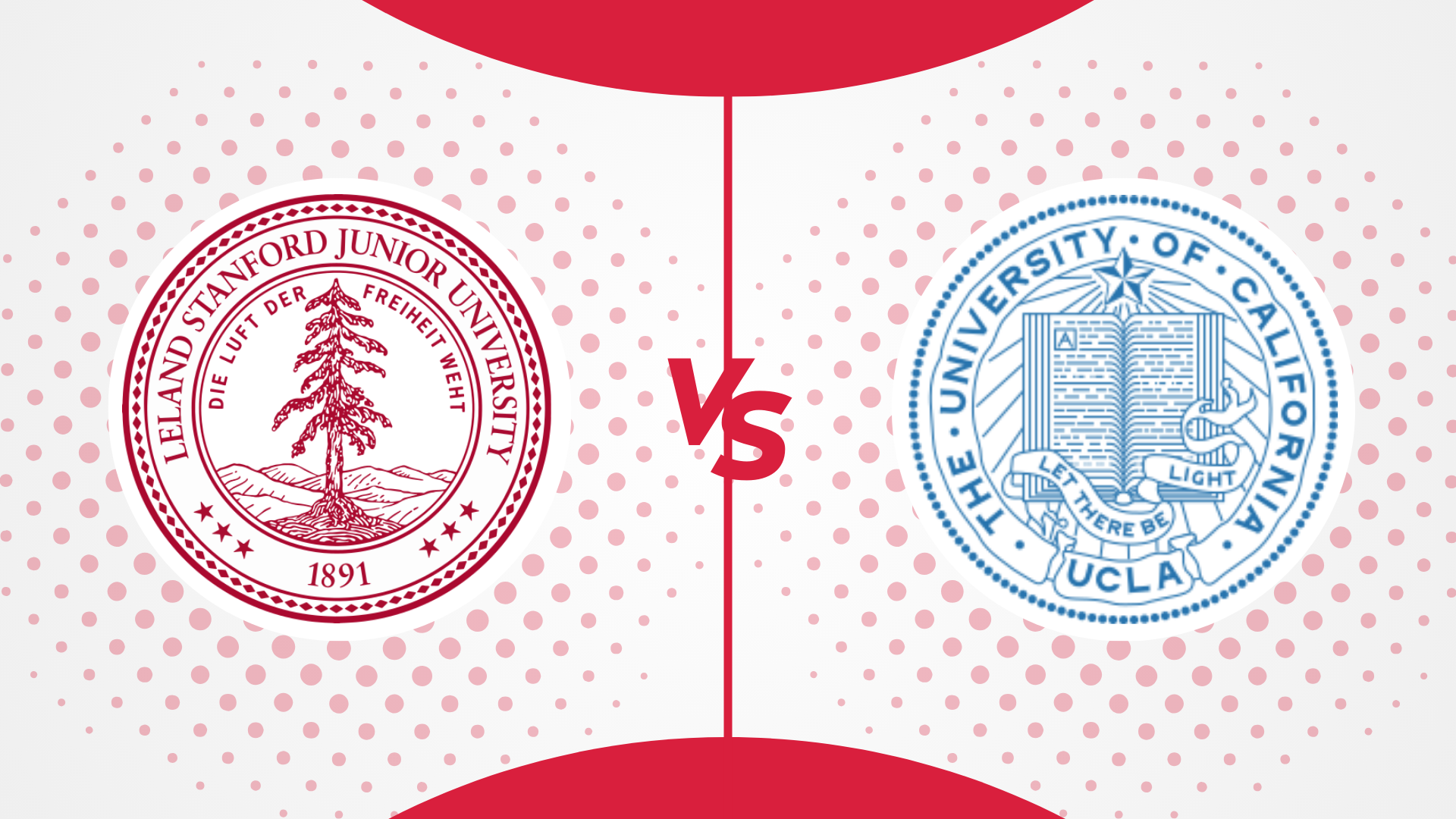
Stanford vs UCLA: Which One is Better For You in 2024
June 28, 2024 -
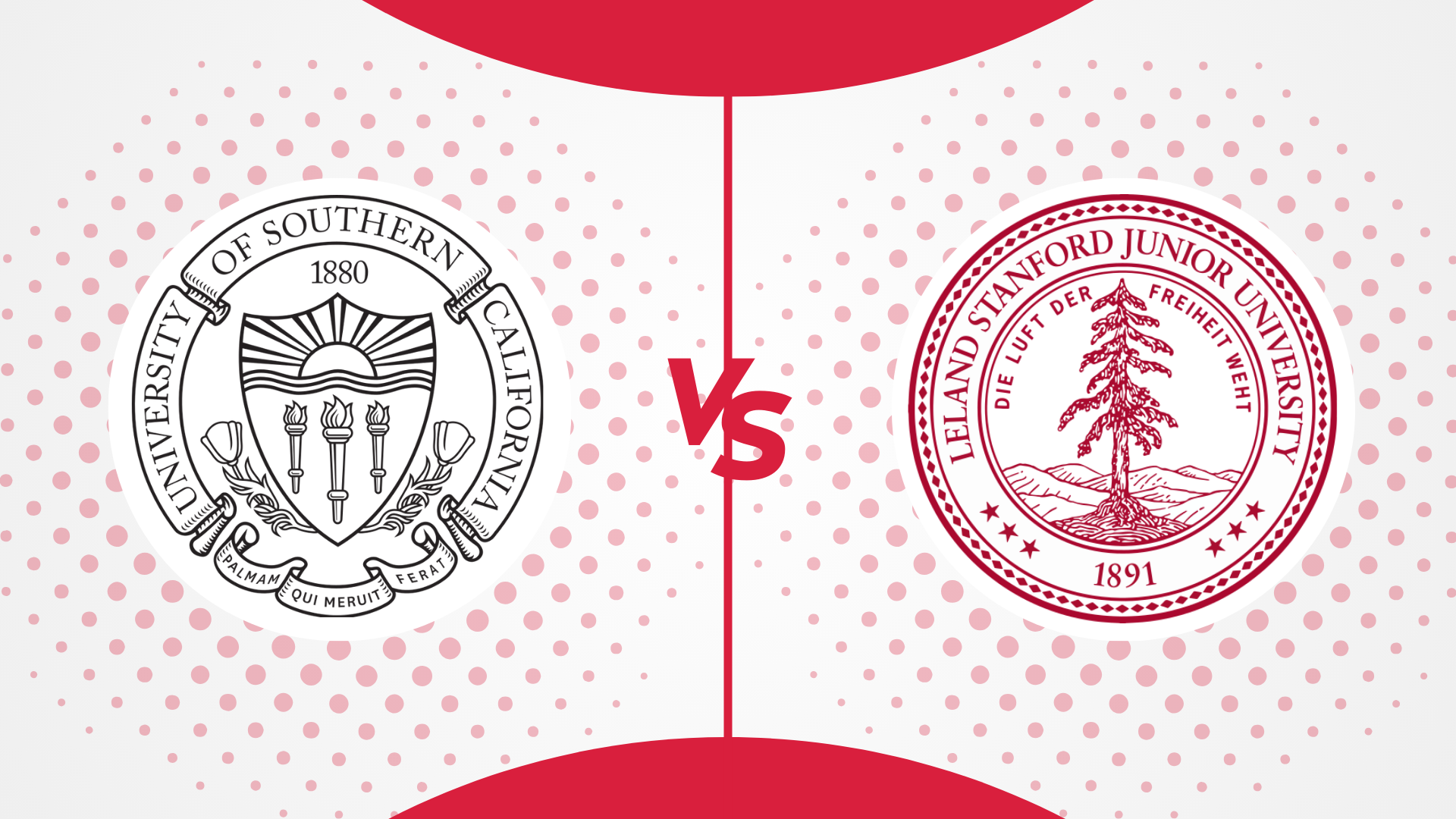
USC vs Stanford: Which One is Better For You in 2024
June 28, 2024 -
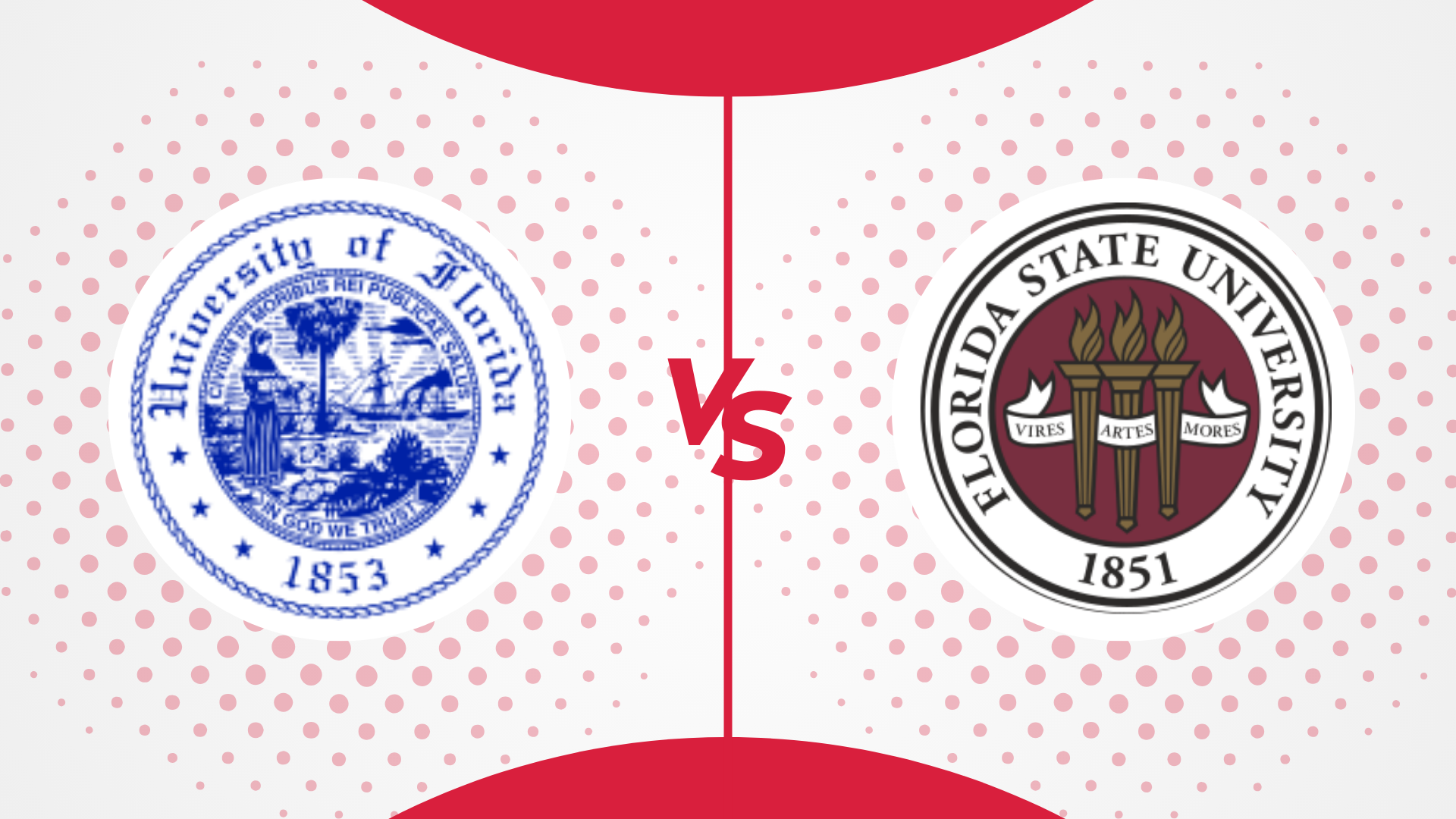
University of Florida vs Florida State University: Which One is Better For You in 2024
June 28, 2024 -

NYU vs Columbia: Which Is Better In 2024?
June 28, 2024 -

Princeton vs Columbia: Which Is Better In 2024?
June 28, 2024 -

NYU vs Cornell: Which One Is Better In 2024?
June 28, 2024 -

Boston University vs Northeastern: Which one is best in 2024
June 28, 2024 -

NYU vs UCLA: Which Is Better For You In 2024?
June 28, 2024
